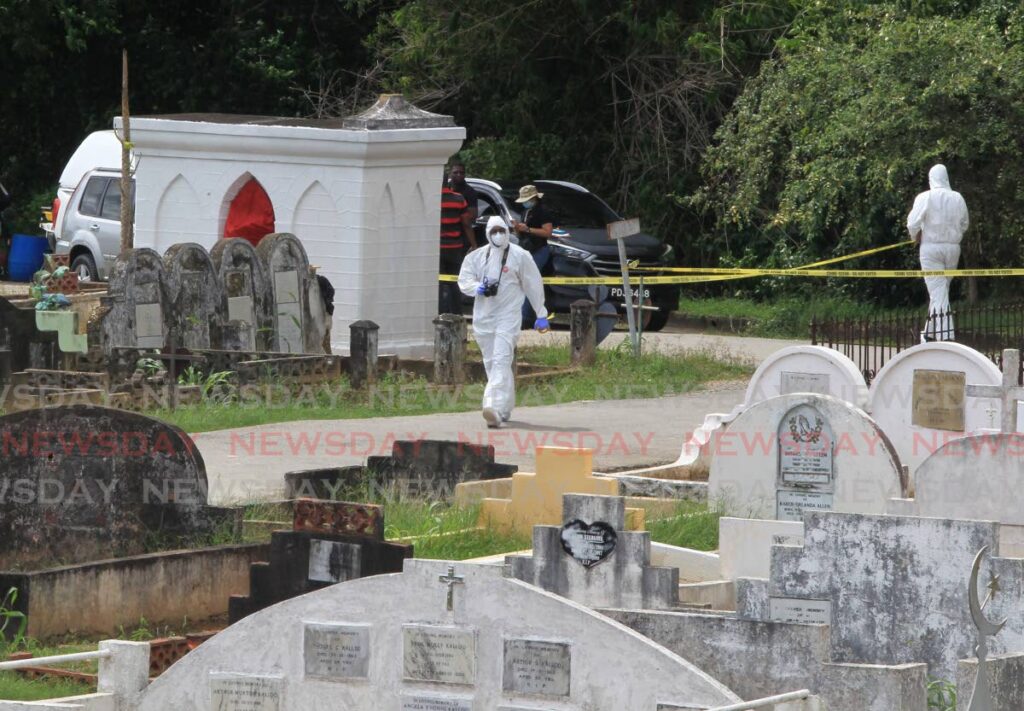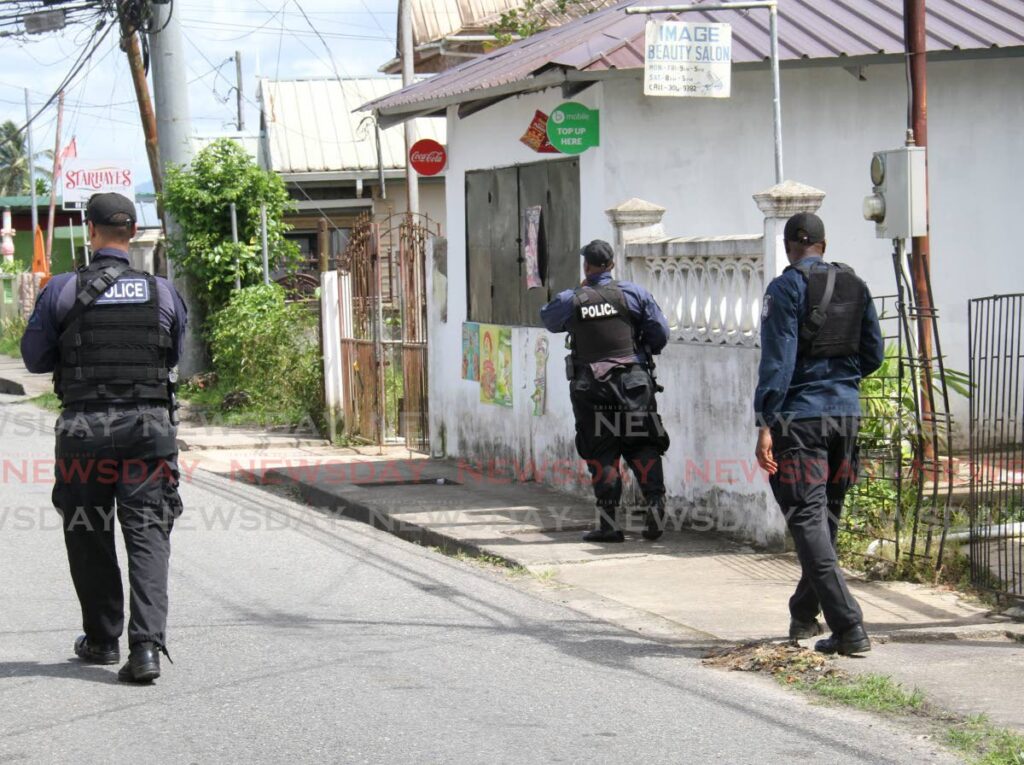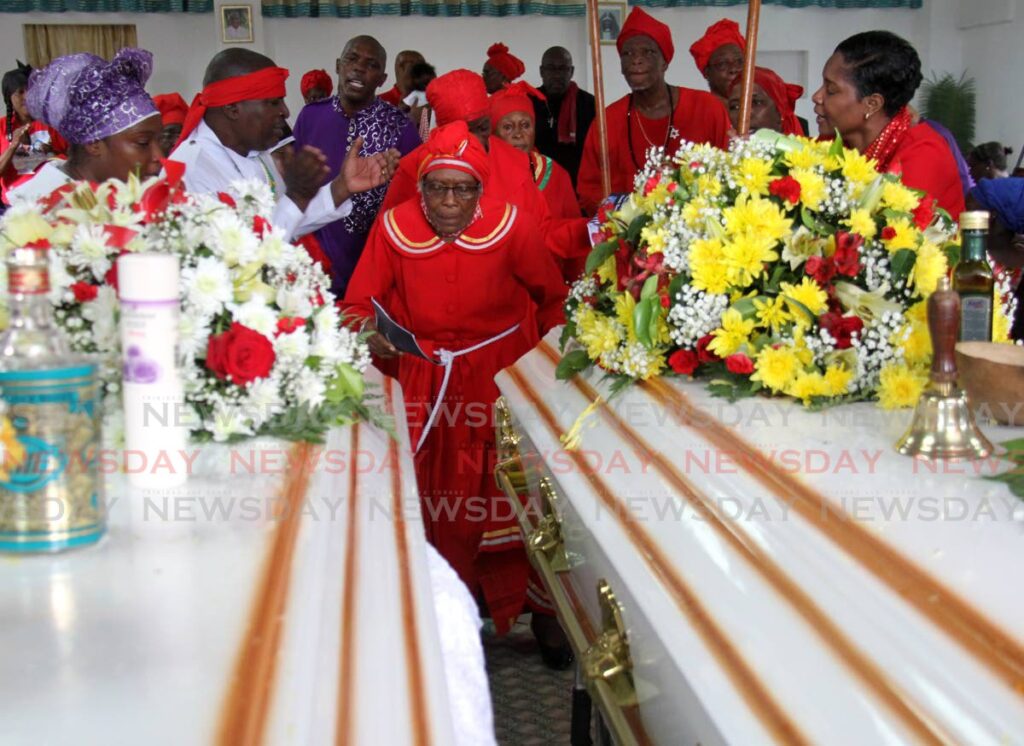Fear factor cripples economy, says experts

Experts say the current murder and crime rates have made the general population feel they could become victims at any time, causing fear and threatening the stability of the country.
Up to Saturday afternoon, the murder toll was 529 equalling TT’s record in 2008. The figure up to November, 2021 was 322.
Speaking with Sunday Newsday, criminologist Daurius Figueira said if the number of murders in November and December were on par with October, TT would cross 600 murders this year. However, he said the current “murder spree” really began in 2017.
“The reason for it is the same reason for the increased murder rates in 2017, 2018 and 2019, so it’s a continuation. It took a break in 2020 because of the pandemic, but in 2021 it started back and then exploded in 2022. That reason is a war between two different models of trans-national organised crime that is going on in TT.”
He said Colombians traditionally dominated the drug trade in TT, but Mexicans “moved in and knocked them over.” He believed it was the retaliation by the Colombian-controlled group that caused the war.

He said the Mexican affiliates in TT were all from “gang lands” or areas controlled by gangs. These areas were not necessarily “hot spots” as some of the areas, spread all over TT, were “quiet.” Most of those connected to the Colombians were also affiliated with gangs, but some were not.
Nevertheless, most “top-tier” gangs were local operatives of the cartels, and the foot soldiers were generally the ones being killed.
Figueira said what made the war especially bloody was the importation of assault rifles, which were being bought from the US as the price of automatic weapons in South America was much higher. One of the more popular assault rifles was the AR15s, which made multiple homicides possible in one attack.
“The next thing that has sent the murder rate escalating, is the way in which this war is being fought, where you have those who don’t care who they kill in order to get at a target.
“Then, you have people going around killing people who have no connection to the war. What they are doing is destabilising the society with gun violence.”
He said, in the latter instance, the gangs were choosing situations and occasions to open fire on people. He said it was an old Colombian technique to spread fear amongst the population and promote their political agenda.
“If only one type of people, say gangsters, were getting killed, no one would be raving for a solution. But when you start to shoot little children, shoot up football fields with people, and others who have nothing to do with gangs, wouldn’t that create pure fear and unrest? It is to impact politics.”
He claimed Venezuelans were not directly involved with the gangs but some were associated with the Colombians and therefore were contributors to the war.
“Who you think brings them here illegally and smuggling them over on the boats? The Colombians own them. That’s why they don’t give up any criminals amongst themselves. They aren’t all victims.”
He said it was the duty of politicians to fix agencies of the State that were not functioning well. Since the illegal gun trade in TT was driving the violence, and the guns were passing through legal ports, the politicians were failing to do their job, allowing a “tidal wave” of illegal automatic weapons in the country.
“The police have no power to stop the guns from coming through the legal ports. That is Customs and Excise (Division)’s work. The politicians have to fix Customs and Excise because not enough is being done to stop the gun pipeline from America bringing in these AR15s.
“It is totally illogical to expect the police to seize guns, clean up all the guns, when the port is a free-for-all.”
“As the illegal firepower in TT evolved into the assault rifle bracket, so too the gun violence evolved into a torrent of murder. If you want to reduce the murder rate, you have to plug the hole the guns are coming through.”

He said from the time a human got their hands on a gun, they felt “like superman.” "If they wanted to kill and they could easily get the means to do so, there was nothing to stop them from doing it."
Prof Derek Chadee, co-ordinator of the UWI Psychology Unit, agreed TT was in “a serious situation.”
Comparing TT to Canada, he mentioned there were 30.5 murders per 100,000 people in TT in 2015, while in Canada, there were about 1.7 murders per 100,000. When murders crossed 500 last Saturday, the statistics were about 38 per 100,000 in TT, and about two murders per 100,000 in Canada.
Those high numbers, he said, had a psychological impact on citizens. This week the US State Department issued an advisory to Americans to reconsider travel to TT.
With crime in general, those directly impacted could become depressed, or feel a sense of shame and embarrassment. Those with indirect experience, who learn about it through word of mouth, or through social or traditional media, could feel a sense of helplessness. While all could feel fear and anxiety.
“The psychological impact of that really is that people feel a sense of a loss of control. There is anger towards those who are in authority, and the feeling that much more is needed.”
Although, to be fair, he said a lot could be happening behind-the scenes that the police and Ministry of National Security could not reveal for reasons of security or not tipping off criminals.
Factors that influence fear of crime or “risk of victimisation” include rumours, the severity of the crime itself, location and the media. With location, it could be that some in rural areas may feel isolated and vulnerable, or their distance from the scene of an individual’s direct experience with crime.
The media could contribute if crime was presented in a graphic way.
“The media has a responsibility and the public needs to know what’s happening. But also, the way it’s reported could heighten the fear of crime within communities that may be disturbed or are not well-organised.
“Fear has implications. It could prevent us from engaging with our community, keeping us from the kind of solidarity we may need to form bonds within the community to have that cohesiveness.”
Another response to fear was the use of protective and defensive measures such as security cameras, walking in groups, installing burglar proof, getting legal firearms, and even denial.
“Denial is a defensive mechanism people utilise to reduce their fear levels when they focus on more positive things around them.”
Chadee added that fear could empower the “agents of fear” and they had greater power when they used as weapons in their activities.
“The fearful are motivated to withdraw from interacting with potentially dangerous situations, and discourage relatives and friends from doing similarly.
“In so doing, it leads to a sense of control for those who create the fear. They become emboldened. That creates a sense of efficacy among the criminals, using the psychology of fear to enter a particular place or area.”
Factors important in accessing murders, he said, included circumstances surrounding the murder, geographical concentration, the intended and unintended victims, the relationships of the victims to the perpetrators, and more. While those factors did not diminish the dread of the crime but it helped people to understand, so they could make interventions.
He believed TT needed “a sense of humanity” which should be instilled at an early age through the family system but especially in schools. At school, morals or civics could be taught systematically using simple activities that allowed children to connect to people and the environment, rather than just smart devices and technology.
“That sense of interaction and social engagement are so important for human living, respect and appreciation of each other. That needs to be built in a very systematic way along with consideration for the needs of the Gen Z, which is also a digital engagement.”
Prof Ramesh Deosaran, professor emeritus of criminology and social psychology at UWI and a former independent senator, said the increase in the murder rate and the number of home invasions, which seemed random, made people expect to be a victim any time and anywhere.
He said crime was a public health issue as it could cause people to be dispirited, demoralised, afraid to leave their homes, turning TT into an introverted society, which was a “dangerous” psychological state to be in today and for the future.
“That has social, economic and psychological implications. People feeling it could be them at any point creates a very unhealthy system for a democratic society.
“If it continues to be so, we would end up with a frightened society, very introverted. There would be less opening of businesses, likely less shopping, and eventually everybody would be looking to leave for North America.”
He said the Commissioner of Police inherited a police service that urgently needed to be restructured in terms of equipment, technology, and human resources. He believed the entry qualifications were outdated and no longer worked to produce an efficient, effective and professional police force.
“It might be like putting new wine in old bottles when you provide sophisticated technology without having the human resource capacity to utilise these effectively.
“And the politics of the country today is not very friendly to improving both the police service and the policies required to ease public fear and help control and manage crime. We need to inspire better collaboration of all the parties involved in Parliament and in the public domain – be it business, labour, church – because without that national collaboration, we would only reach halfway without finishing it.”
He said the increase in the murder rate should create a sense of urgency in all relevant parties but they should not expect an overnight solution to crime since it “crept up” on the country over decades.
Deosaran agreed that the assault rifles coming into the country was one of the main contributors to the murder rate. He said when the police seized the guns, they looked old and well-used, and were most likely discarded by the US after they were used in wars.
He said the Strategic Services Agency repeatedly told the government that guns were coming into TT through both legal and illegal points of entry, and he and others had been pressing the authorities to control and monitor the country’s borders since 1977.
“Without plugging all those leakages, we will not get the results we want. The murder rate will remain as steady or even climb much higher in the coming years.”


Comments
"Fear factor cripples economy, says experts"